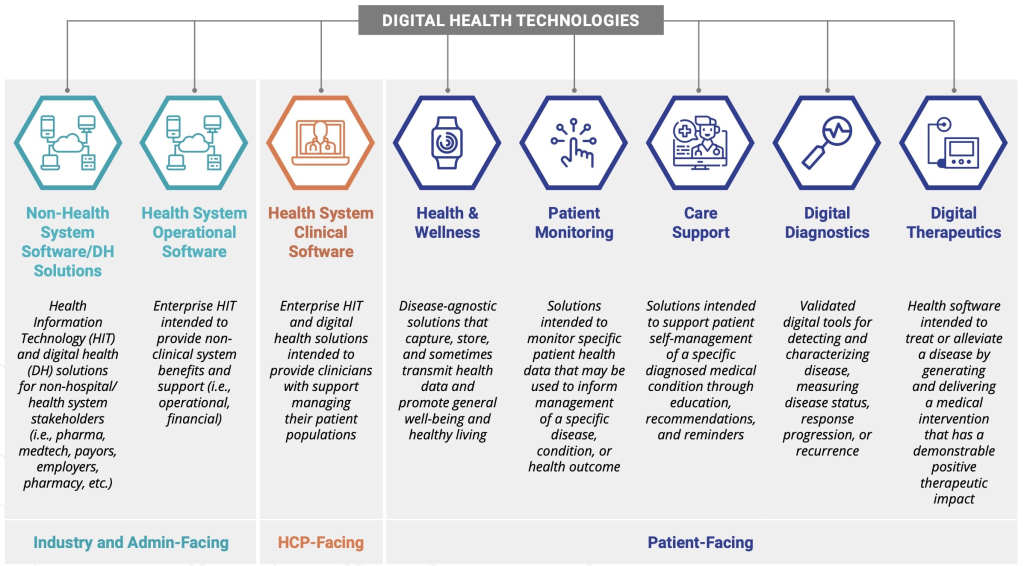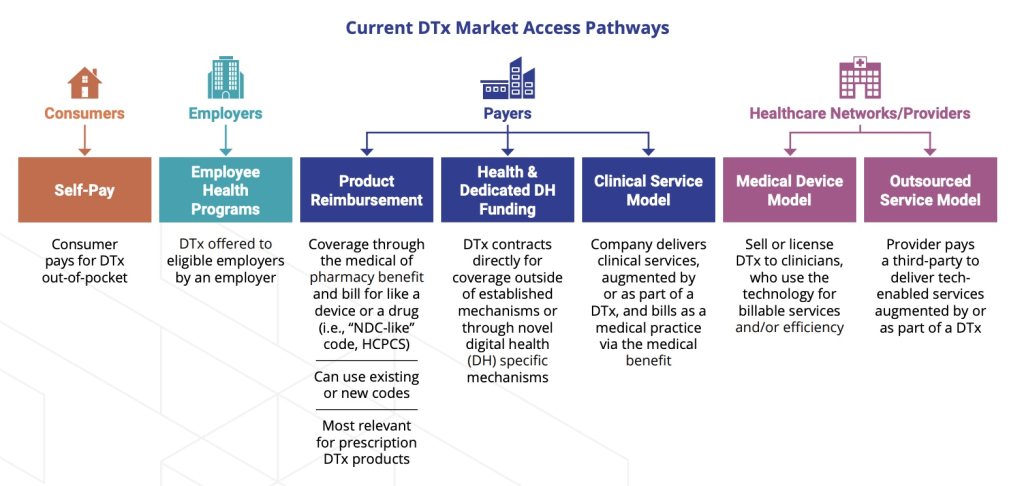Value of DTx / Payors
Clinical and Financial Value
The Covid-19 pandemic has exposed the challenges payors face in delivering accessible high-quality care outside of traditional office-based visits. Payors are now considering additional options for how to best meet patient needs and close gaps in care with non-traditional approaches.
By combining technology and evidenced-based medicine, DTx products offer patients access to therapies that address a wide range of conditions, enabling payors to:
- Reduce the overall cost of care
- Enhance, support, and optimize current medical treatments
- Optimize patient engagement
- Improve provider network efficiency
- Support value- and outcomes-based care initiatives
- Expand care delivery outside of traditional clinic settings
- Improve member experience and satisfaction
Insights and information collected by digital technologies are easily integrated within care management workflows to provide payors with valuable insights that support population health management and value-based care initiatives.













